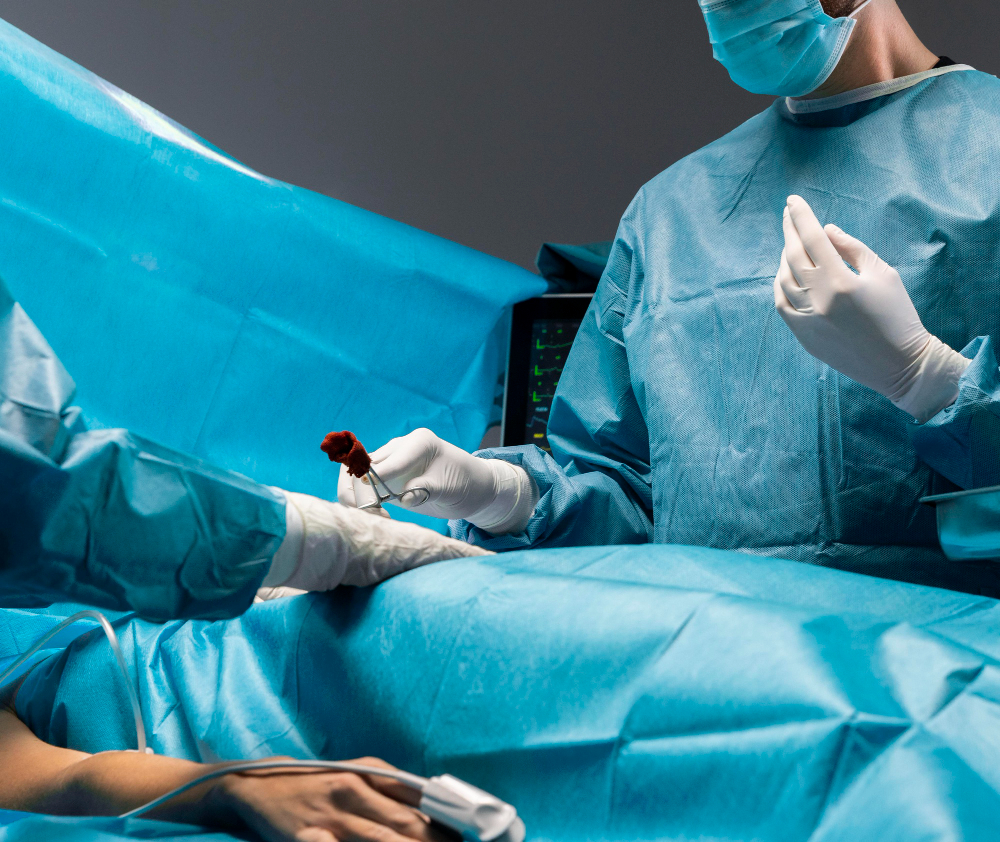What Is Bowel Resection?
Bowel resection is a surgery to remove a part of the bowel, which includes the small or large intestine. Doctors may perform this procedure when a section of the bowel is diseased or damaged. In urology, bowel resection can be needed if the bowel is affected by nearby urinary organs or if a urinary diversion is required. This surgery helps restore normal function and improve health. Often, bowel resection recovery depends on the reason for surgery and your overall health.
Common Symptoms Leading to Bowel Resection
Several symptoms may suggest a problem that needs bowel resection. Early recognition is important. If you notice these signs, seek medical advice:Severe or ongoing belly painBlood in your stoolSudden changes in bowel habitsUnexplained weight lossFrequent nausea or vomitingSwelling or bloating in the belly
Sometimes, these symptoms can be mild at first. However, they may get worse over time. Early treatment can prevent complications.
Causes and Risk Factors
Bowel resection is often needed for several reasons. Understanding the causes and risks can help you stay informed. Common causes include:Cancer of the bowel or nearby organsBlockages or strictures (narrowing) in the bowelSevere infections or inflammation, such as Crohn’s diseaseInjury or trauma to the bowelDiverticulitis (small pouches in the bowel wall become infected)
Some risk factors make bowel problems more likely. For example, age, family history, and certain chronic diseases can increase your risk. In urology, some surgeries for bladder cancer may require bowel resection to create a new way for urine to leave the body.
How Is Bowel Resection Diagnosed?
Doctors use several steps to diagnose the need for bowel resection. First, they review your symptoms and medical history. Next, they may order tests such as:Blood tests to check for infection or anemiaImaging scans like CT or MRI to see the bowelColonoscopy to look inside the bowel
After these tests, your doctor will discuss the best treatment options. Sometimes, more than one test is needed to confirm the diagnosis.
Treatment and Surgical Procedures
Bowel resection surgery is the main treatment. During the procedure, the surgeon removes the damaged part of the bowel. Then, the healthy ends are joined together. In some cases, a temporary or permanent opening (stoma) is made in the belly to allow waste to leave the body. The type of surgery depends on the cause and your health. Minimally invasive techniques, such as laparoscopy, may lead to faster recovery and less pain.
Recovery and Aftercare Tips
Recovery after bowel resection varies for each person. However, most people stay in the hospital for several days. Here are some tips to help with bowel resection recovery:Follow your doctor’s instructions closelyStart moving as soon as you are ableEat small, easy-to-digest mealsDrink plenty of fluidsWatch for signs of infection, such as fever or rednessTake all medicines as prescribed
Aftercare is important for healing. If you have a stoma, a nurse will teach you how to care for it. Over time, most people return to normal activities. Still, some may need extra support during bowel resection aftercare.
Prevention and Lifestyle Guidance
While not all causes of bowel resection can be prevented, healthy habits may lower your risk. Consider these steps:Eat a balanced diet rich in fiberStay active with regular exerciseAvoid smoking and limit alcoholGet regular check-ups, especially if you have a family history of bowel disease
Early detection and healthy choices can help prevent serious bowel problems. In addition, following your doctor’s advice is key.
When to Consult a Urologist
If you have symptoms that may need bowel resection, talk to your doctor right away. In some cases, a urologist is involved, especially if the bowel problem is linked to the urinary system. For example, if you need surgery for bladder cancer, a urologist may discuss bowel resection as part of your treatment plan. Always seek medical help if you notice new or worsening symptoms.
Consult a specialist for personalized guidance on bowel resection and recovery.

